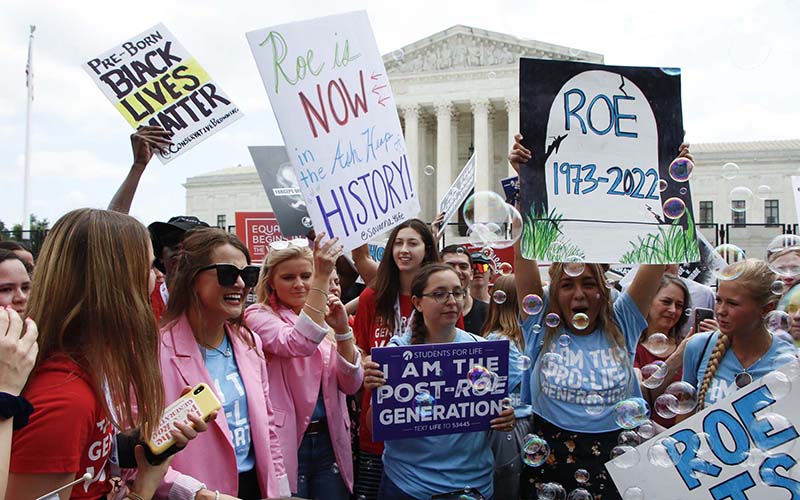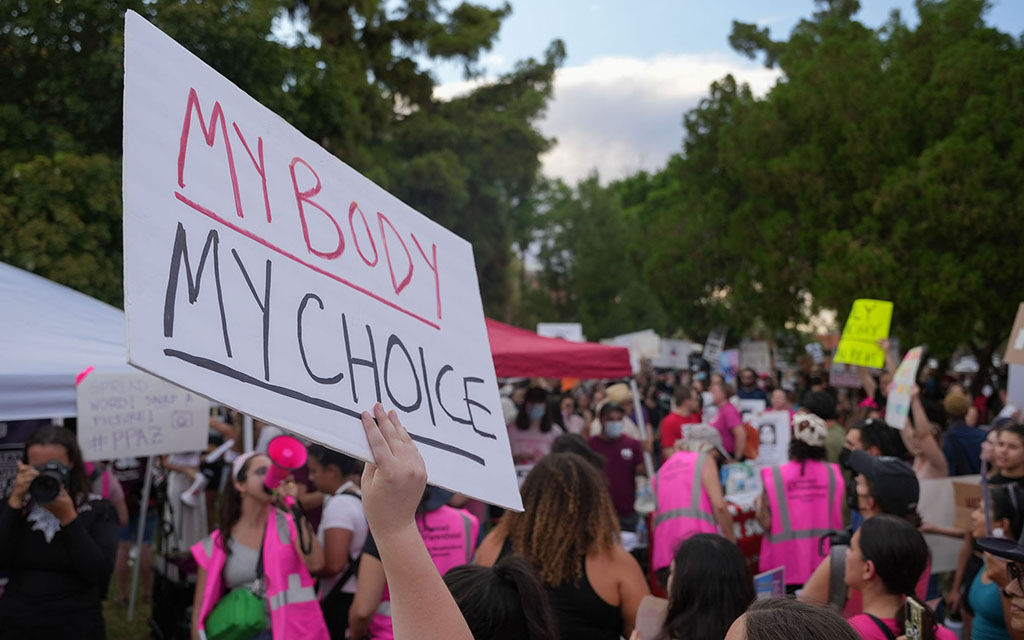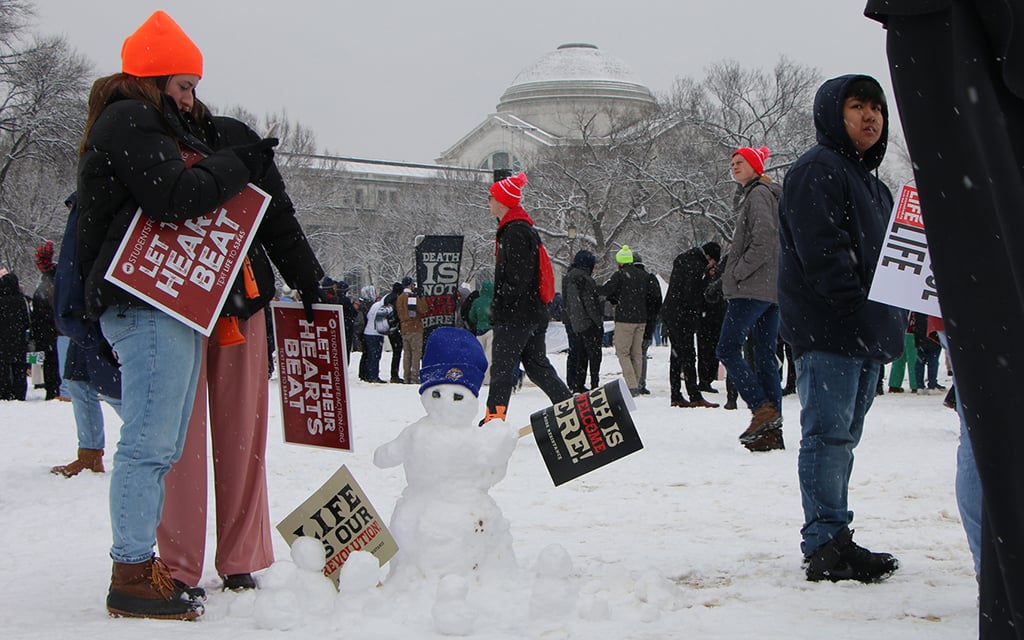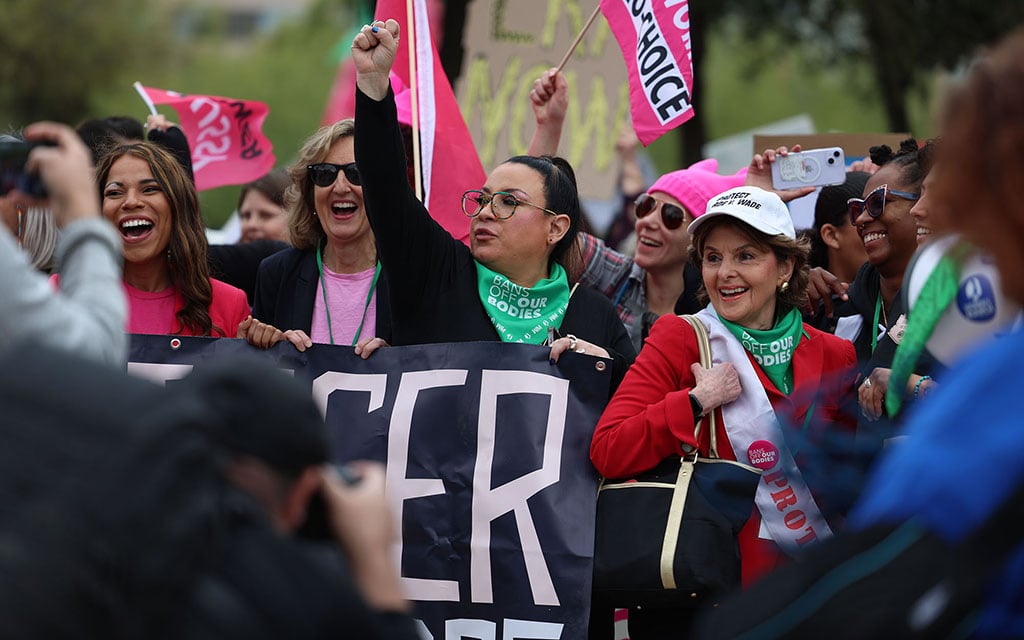WASHINGTON – It’s been nearly two months since the Arizona Supreme Court heard arguments over the state’s abortion law, and its ruling in that case could all but ban abortions in the state or allow them to continue up to 15 weeks.
Both sides of the debate said they are bracing for that ruling – and waiting.
“Either way the decision goes, there are almost 50 pro-life pregnancy centers in Arizona that stand ready to help women having an unplanned pregnancy,” said Cathi Herrod, president of the Center for Arizona Policy. “Whether it’s 15 weeks or the pre-Roe ban, women will be well served by the pregnancy centers throughout Arizona.”
Eloisa Lopez, executive director of the Abortion Fund of Arizona, said she is “remaining hopeful,” but believes the court would be making a mistake if it were to uphold the state’s 19th century abortion ban.
“It would be very shocking to see the courts say that that needs to be the current law of the land,” Lopez said. “If that were the case that just shows you the ruling was politically charged.”
The court’s ruling will be the latest twist in a roller coaster of abortion rulings that began in June 2022, when the U.S. Supreme Court said in Dobbs v. Jackson Women’s Health that the decision on abortion rights should be left to the states. In doing so, the court reversed its landmark 1973 ruling in Roe v. Wade, that recognized a right to an abortion.
That sent abortions in plummeting in Arizona, as in many other states.
“Before the Dobbs decision, more than 1,300 abortions were provided per month by health care providers in Arizona,” Dr. Alison Norris, co-chair of the research steering committee of the Society of Family Planning’s #WeCount project. “In the month following, it dropped down to 210 because there was such uncertainty that some providers were no longer providing abortions within the state.”
But abortions in Arizona have since climbed back toward pre-Dobbs levels, as lower court rulings sided with the 15-week law.
“The numbers went back up to 720 in August (2022) and got back up to 1,000 in January (2023). Over the last several months it has generally stayed around 1,000 per month,” Norris said.
The reversal of Roe triggered long-dormant abortion bans in some states, and led others to codify abortion rights, but Arizona has been caught in the middle.
Shortly before Dobbs, a new Arizona law set the limit for abortions at 15 weeks of pregnancy – but that bill also included language preserving the 1864 abortion ban, in case Roe was overturned. Despite that language, abortion rights groups argued that the 19th century law was trumped by decades of state abortion regulations and legal abortions.

Anti-abortion protesters at the Supreme Court react in 2022, after the court overturned its Roe v. Wade decision, capping a 50-year fight by opponents to reverse Roe, which recognized the right to an abortion. (File photo by Neetish Basnet/Cronkite News)
“In Arizona, and in several other states, Dobbs created a lot of uncertainty,” Norris said. “It was unclear to lawmakers, health care providers and patients themselves what was permitted due to laws that were on the books from before Dobbs and even before Roe v. Wade.”
A Pima County Superior Court judge ruled in 2022 that the old law was still in effect. But that ruling was reversed on Dec. 30, 2022, by the Arizona Court of Appeals, putting the 15-week law back in place.
That decision was appealed to the state Supreme Court, which heard arguments on Dec. 12, 2023.
Herrod says framing the abortion ban as a territorial-era law, as opponents do, is “slanted.” Because the law was never repealed, she said, it should still be enforceable.
“The only reason the pre-Roe law had not been in effect during that time was because of the Roe v. Wade decision,” Herrod said “The state legislature never repealed it so it could still be enforceable.”
Lopez thinks the 15-week ban – which would have not been possible under Roe – is too restrictive, but she says a return to an abortion ban would have far-reaching consequences.
“Some of the clinics now are more well-women’s clinics where they offer other services in addition to abortion care in the existing clinic,” said Lopez. “It (restoring the ban) would make it very challenging for these clinics to keep their doors open.
“There would be providers who, like after Dobbs, would take a significant hit to their clinics financially,” Lopez said.
Herrod disagrees, saying an abortion ban could help providers focus on other women’s health issues.
“Abortion is not health care. Abortion is not pregnancy care. Abortion hurts women. Abortion takes the life of an unborn child,” she said.
But Lopez rejected what she called the “absurdity of enforcing the law from a time when none of us were around,” a law that would not just ban abortions but criminalize providers.
“That law also bans the advertisement of contraceptives, so that could have ramifications on birth control which could really have an unraveling effect because that would affect so much,” Lopez said.
“The best-case scenario would be the judge strikes down an 1864 law and says that is not the current law of Arizona,” she said. “That means we would keep the current status-quo which is the 15-week ban.”




